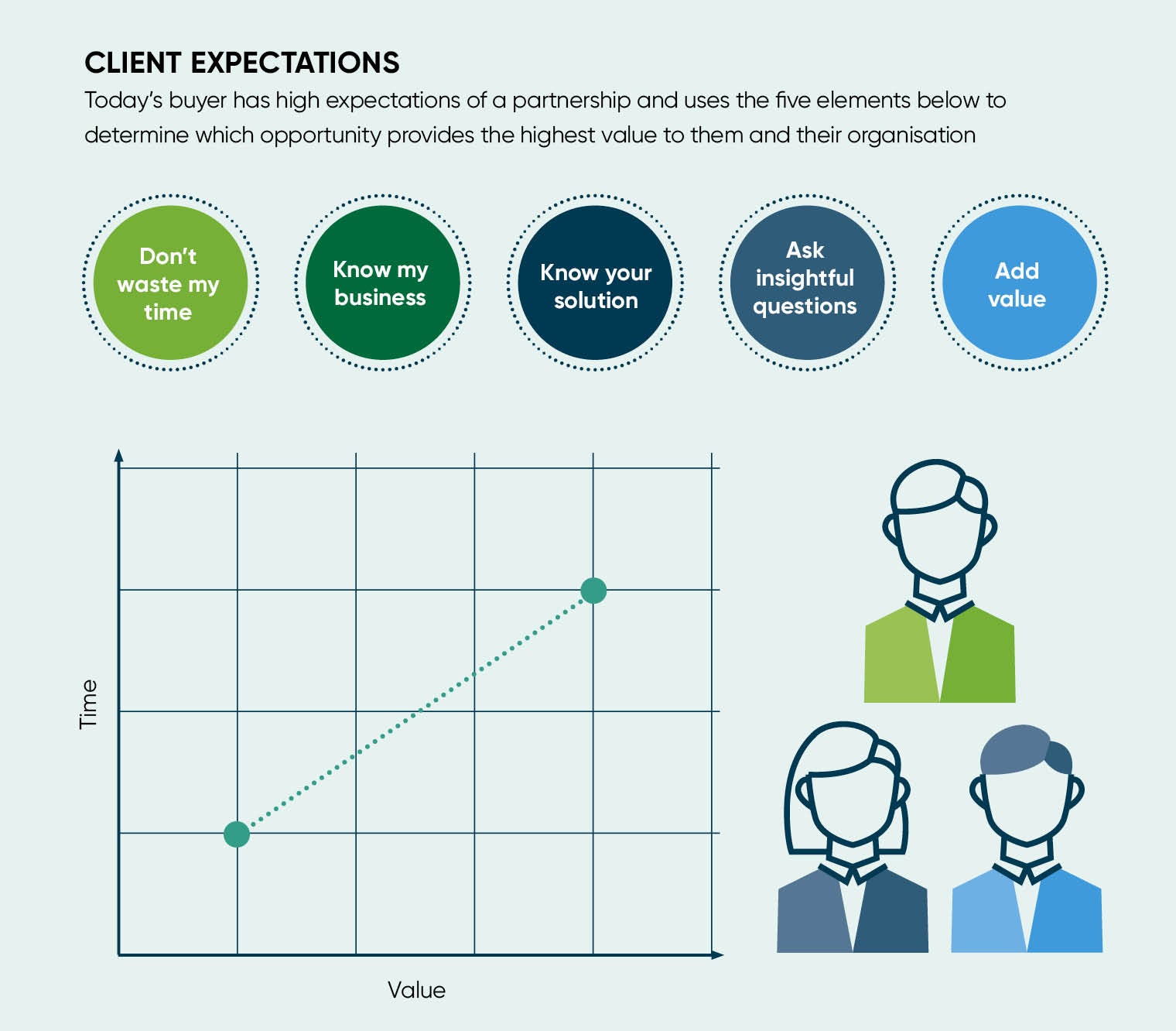This year is a critical time for sales managers and their teams, and several key factors are combining to make it so. New use of data, personalisation and scientific skillsets are playing an increasingly important role; in a few years’ time selling may even be more about science than art.
In the near future, there will be significant change, starting with sales reps being automatically monitored and having their activities analysed.
“There is an opportunity to dramatically improve the sales process,” says Byron Matthews, president and chief executive at sales training and consultancy firm Miller Heiman Group. “We studied how sales reps spend their time and found that only 30 per cent were focused on pure selling, and under half of that time was spent on real ingenuity. Data can show what is working and what isn’t.”
The remaining 70 per cent of time, he says, is accounted for by the “tedium” of doing research, travel, adding information to customer relationship management systems, liaising with finance managers and so on.
Sales has always been more of an art form, but the strength of good science here is becoming increasingly obvious to managers
While the extensive hours spent on these manual efforts may not surprise sales chiefs, the advanced status of technological change and what it can deliver for processes is likely to. The artificial intelligence present in a range of new systems already enables sales interactions to be monitored live and properly understood, and companies of all sizes are beginning to adopt the technology.
“A sales rep can be in a real or virtual meeting, and the system will provide on-the-spot advice and training, such as suggesting what answer the rep can provide to their own ‘problem question’, prompting the rep to ask more questions or ensuring they listen more to the prospect,” Mr Matthews explains. “Meanwhile, managers have live updates on what is happening and the ability to retrospectively review activity in detail.”
In a matter of a few years, the technology is expected to be commonplace in salesforces across industries, thanks to the ability of the new systems to improve processes based on the evidence of what is actually working.
“Sales has always been more of an art form, but the strength of good science here is becoming increasingly obvious to managers,” he notes. “There is a new, transparent operating model empowered by technology and it enables smarter sales.”
In a world of more sophisticated customers, who have research and ratings at their fingertips online, sellers need even more to move to such systems. Buyers have become better at buying, much more quickly than sellers have improved at selling. Customers already know what they want and salespeople need the ability to provide them with proper added value, showing they really understand their individual requirements.
“It’s getting harder and harder for businesses to make sales,” says Mr Matthews. “There is the key factor of buyers being more informed than before. But also there are more sellers and buyers involved in decisions than ever before. If there are more people and processes involved, this means there is more politics and more going on behind those decisions, and the only way to break through that is to add value”.

Personalisation is set to be a leading source of this added value in the sales processes of the future and tailored content is key. Targeted personalisation increases customer engagement and many businesses are understood to be investing in personalised messaging. But the sales process itself, when meetings are taking place and conversations are happening in real time, is now seen to be ripe for its own boost of data-driven personalisation.
Miller Heiman Group offers a range of services to help businesses in this. Its sales methodology helps staff clinch the most valuable deals effectively and in a personalised manner, while service methods help retain happier customers. Real-time training makes the most of salespeople’s time in any interaction and strategic services guide firms on the big picture.
But there is another area that sales chiefs must remember. Talent acquisition and development is an equally important part of the equation as the nature of sales shifts to incorporate much more data and real-time evidence. Miller Heiman Group helps businesses assess the people skills they need now and in the future, audit their current talent base and plan for the coming years.
“In such a world of new technology, we’re going to see a higher demand for salespeople who come from a STEM [science, technology, engineering and mathematics] background than from business administration and communications degrees,” Mr Matthews says. “It is vital that companies can recruit the right mix of people and develop them so they are at the forefront of the innovation.”
He concludes that while selling will ultimately remain a combination of both art and science, the demands of choosy buyers and strict client budgets will prompt companies to integrate science, and scientific staff, much more quickly into their ways of working.
The need for change is stunningly apparent. “The percentage of salespeople hitting or exceeding their targets has declined steadily, from 63 per cent in 2012 to 53 per cent this year so far,” Mr Matthews says. “This means things have to shift. Even if there are one or two leading salespeople in any company, who just get it right, sales teams overall are struggling to deliver – innovation here is essential.”
It is increasingly important for businesses to become better and more agile sellers, applying scientific ingenuity to understand each of their existing and potential customers. Companies’ adoption of new sales systems and sophisticated methodology, and their recruitment and retention of the right talent, will be the deciding factors in how well they are able to sell.
To learn how to master sales ingenuity in your company please visit millerheimangroup.co.uk

